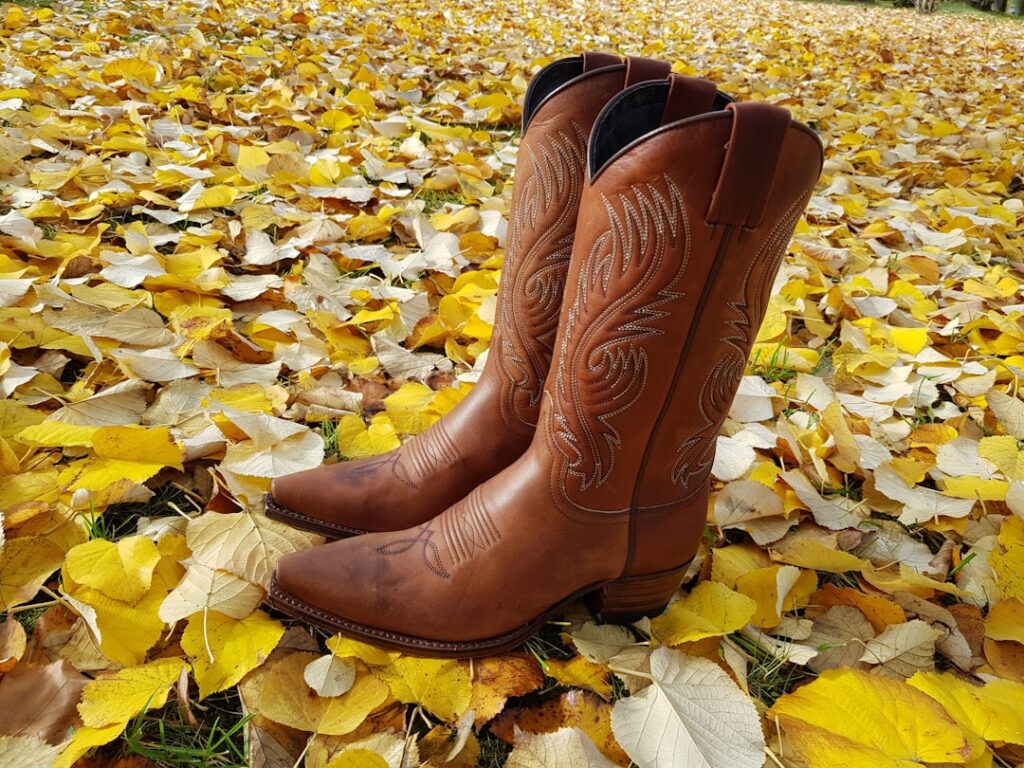When considering the cost of a helicopter, there are several factors that can significantly impact the price. The first and most obvious factor is the type and model of the helicopter. Different models come with different features, capabilities, and sizes, all of which can affect the price. Additionally, the age and condition of the helicopter will also play a role in determining its cost. Newer helicopters with advanced technology and modern features will generally be more expensive than older models.
Another important factor to consider is the helicopter’s usage history. Helicopters that have been used for commercial purposes or have a high number of flight hours may be priced lower than those with minimal usage. The overall condition of the helicopter, including its maintenance history and any previous damage, will also impact its cost. Furthermore, the location of the helicopter can affect its price, as helicopters located in regions with higher demand or higher operating costs may be priced higher. Lastly, the current market conditions and economic factors can influence the cost of a helicopter. During times of high demand or economic prosperity, prices may be higher, while during downturns or periods of oversupply, prices may be more competitive.
In conclusion, the cost of a helicopter is influenced by various factors such as the type and model, age and condition, usage history, location, and market conditions. It is important to consider all these factors when evaluating the cost of a helicopter to ensure that you are getting the best value for your investment.
Key Takeaways
- The cost of a helicopter is affected by factors such as size, model, age, and condition.
- Types of helicopters range from small, single-engine models priced around 0,000 to large, multi-engine models priced over million.
- Additional costs to consider when purchasing a helicopter include insurance, storage, maintenance, and pilot training.
- Financing options for buying a helicopter include traditional bank loans, leasing, and helicopter-specific financing companies.
- Operating costs and maintenance expenses for helicopters can vary widely depending on factors such as fuel, maintenance, and pilot salaries.
- The resale value and depreciation of helicopters can be influenced by factors such as market demand, age, and maintenance history.
- Tips for finding the best deal on a helicopter include researching the market, getting multiple quotes, and considering pre-owned options.
Types of Helicopters and Their Price Range
Helicopters come in a wide range of types and sizes, each with its own unique features and capabilities. The price range for helicopters can vary significantly depending on the type and model. One of the most common types of helicopters is the light single-engine helicopter, which is typically used for personal transportation or light commercial operations. These helicopters are generally more affordable, with prices ranging from $250,000 to $1 million, depending on the specific model and features.
Another popular type of helicopter is the twin-engine helicopter, which offers increased power and capacity compared to single-engine models. These helicopters are often used for corporate transportation, emergency medical services, or law enforcement operations. Prices for twin-engine helicopters can range from $1 million to $10 million, depending on factors such as size, capacity, and technology.
For those in need of heavy-lift capabilities or long-range missions, there are also heavy-lift helicopters and utility helicopters available. These helicopters are designed for transporting heavy cargo, conducting search and rescue operations, or performing military missions. Prices for heavy-lift and utility helicopters can range from $5 million to $50 million or more, depending on their size, capacity, and specialized features.
In summary, the price range for helicopters varies depending on their type and model. Light single-engine helicopters typically range from $250,000 to $1 million, twin-engine helicopters from $1 million to $10 million, and heavy-lift/utility helicopters from $5 million to $50 million or more.
Additional Costs to Consider When Purchasing a Helicopter
When purchasing a helicopter, it is important to consider additional costs beyond the initial purchase price. One significant cost to consider is insurance. Helicopter insurance can be quite expensive due to the high risks associated with aviation. The cost of insurance will depend on factors such as the type of helicopter, its usage, pilot experience, and coverage limits. It is essential to obtain comprehensive insurance coverage to protect your investment and mitigate potential liabilities.
Another important consideration is the cost of hangar storage and maintenance facilities. Helicopters require proper storage and maintenance to ensure their safety and longevity. Hangar rental fees can vary depending on the location and size of the hangar, as well as any additional services provided. Additionally, regular maintenance and inspections are necessary to keep the helicopter in optimal condition. Maintenance costs can include routine inspections, repairs, parts replacement, and compliance with airworthiness directives.
Furthermore, operational costs such as fuel, pilot salaries, training expenses, and navigation fees should also be factored into the overall cost of owning a helicopter. These ongoing expenses can add up significantly over time and should be carefully budgeted for when considering the purchase of a helicopter.
In conclusion, when purchasing a helicopter, it is crucial to consider additional costs such as insurance, hangar storage, maintenance facilities, operational expenses, and other related costs. By accounting for these additional expenses, you can make a more informed decision about the total cost of owning a helicopter.
Financing Options for Buying a Helicopter
| Financing Option | Interest Rate | Loan Term | Down Payment |
|---|---|---|---|
| Bank Loan | 4.5% | 5 years | 20% |
| Lease Financing | 6% | 3 years | 15% |
| Manufacturer Financing | 5% | 7 years | 25% |
Financing the purchase of a helicopter can be a complex process that requires careful consideration of various options. One common financing option is obtaining a loan from a financial institution or specialized lender. Helicopter loans typically require a down payment ranging from 10% to 20% of the purchase price, with loan terms ranging from 5 to 20 years. The interest rates for helicopter loans can vary based on factors such as credit history, loan amount, and loan term. It is essential to shop around and compare loan offers from different lenders to secure the most favorable terms.
Another financing option is leasing or financing through the manufacturer or dealer. Many helicopter manufacturers offer financing programs that allow buyers to lease or finance a new helicopter directly through the manufacturer or dealer. These programs may offer competitive interest rates and flexible terms tailored to the specific needs of helicopter buyers.
Additionally, some buyers may consider alternative financing options such as private investors or partnerships. Private investors or equity partners can provide capital in exchange for partial ownership or profit-sharing arrangements. This option can be beneficial for buyers who may not qualify for traditional financing or who prefer to share ownership and operational costs with others.
In conclusion, there are various financing options available for buying a helicopter, including traditional loans from financial institutions, leasing or financing through manufacturers or dealers, and alternative options such as private investors or partnerships. It is important to carefully evaluate each option and seek professional financial advice to determine the best financing solution for your specific needs.
Operating Costs and Maintenance Expenses
Once you have purchased a helicopter, it is essential to consider the ongoing operating costs and maintenance expenses associated with ownership. One significant operating cost is fuel. Helicopters consume a considerable amount of fuel during flight operations, and fuel prices can fluctuate based on market conditions. It is important to budget for fuel expenses based on your anticipated flight hours and operational requirements.
Another ongoing expense is pilot salaries and training costs. If you do not plan to pilot the helicopter yourself, you will need to hire qualified pilots to operate the aircraft. Pilot salaries can vary based on experience level, certifications, and flight hours. Additionally, ongoing training and certification requirements must be met to ensure that pilots remain current and proficient in their skills.
Maintenance expenses are another critical consideration for helicopter ownership. Regular maintenance is essential to ensure the safety and airworthiness of the helicopter. Maintenance costs can include routine inspections, parts replacement, repairs, and compliance with airworthiness directives issued by aviation authorities. It is important to work with qualified maintenance providers and budget for these ongoing expenses to maintain the helicopter in optimal condition.
In conclusion, operating costs such as fuel expenses, pilot salaries, training costs, and maintenance expenses are ongoing considerations for helicopter ownership. By carefully budgeting for these expenses and working with experienced professionals, you can ensure that your helicopter remains safe and operational throughout its service life.
Resale Value and Depreciation of Helicopters

When purchasing a helicopter, it is important to consider its resale value and potential depreciation over time. Like any other asset, helicopters are subject to depreciation as they age and accumulate flight hours. The rate of depreciation can vary based on factors such as the type of helicopter, its usage history, maintenance records, market demand, and economic conditions.
Newer helicopters generally experience higher rates of depreciation in their early years of service due to initial market value adjustments and rapid technological advancements in aviation. As helicopters age and accumulate flight hours, their resale value may decrease further due to wear and tear on components and systems. However, well-maintained helicopters with low flight hours may retain higher resale values compared to those with extensive usage history.
Market demand also plays a significant role in determining the resale value of helicopters. Helicopters that are in high demand due to their capabilities or specialized features may retain higher resale values compared to those with limited market appeal. Economic conditions such as fuel prices, regulatory changes, and industry trends can also impact the resale value of helicopters.
In conclusion, it is important to consider the potential resale value and depreciation of a helicopter when making a purchase decision. By understanding these factors and working with experienced aviation professionals, you can make informed decisions about your helicopter investment and maximize its long-term value.
Tips for Finding the Best Deal on a Helicopter
Finding the best deal on a helicopter requires careful research, negotiation skills, and industry knowledge. One tip for finding a good deal is to work with reputable aircraft brokers or dealers who have extensive experience in buying and selling helicopters. These professionals can provide valuable insights into market trends, pricing dynamics, and available inventory to help you find the right helicopter at a competitive price.
Another tip is to consider purchasing pre-owned helicopters that are well-maintained and have low flight hours. Pre-owned helicopters can offer significant cost savings compared to new models while still providing reliable performance and operational capabilities. It is essential to conduct thorough inspections and evaluations of pre-owned helicopters to ensure their airworthiness and overall condition before making a purchase.
Additionally, it is important to negotiate effectively when purchasing a helicopter. Understanding market conditions, comparable sales data, and potential negotiation points can help you secure a better deal on your helicopter purchase. Working with experienced aviation professionals who have strong negotiation skills can be beneficial in achieving favorable terms and pricing.
In conclusion, finding the best deal on a helicopter requires careful research, industry knowledge, effective negotiation skills, and working with reputable professionals in the aviation industry. By following these tips and seeking expert guidance, you can make informed decisions about purchasing a helicopter at a competitive price that meets your specific needs.
In conclusion, finding the best deal on a helicopter requires careful research, industry knowledge, effective negotiation skills, and working with reputable professionals in the aviation industry. By following these tips and seeking expert guidance, you can make informed decisions about purchasing a helicopter at a competitive price that meets your specific needs. Whether you are buying a new or used helicopter, it is important to consider factors such as maintenance costs, operational requirements, and resale value. Additionally, understanding the current market trends and having a clear understanding of your budget will help you make a well-informed decision. Lastly, working with experienced professionals such as aviation consultants, brokers, and maintenance experts can provide valuable insights and assistance throughout the purchasing process. With the right approach and support, you can find the best deal on a helicopter that aligns with your goals and budget.
If you’re interested in learning more about the cost of helicopters, you should check out this article on Wide Angled. They provide in-depth information on the various factors that contribute to the price of a helicopter, including the type of helicopter, its age, and its condition. This article will give you a better understanding of what to expect when it comes to purchasing a helicopter.
FAQs
What factors influence the cost of a helicopter?
The cost of a helicopter is influenced by factors such as the make and model of the helicopter, its age, its condition, its features and equipment, and its overall market demand.
What is the average cost of a new helicopter?
The average cost of a new helicopter can range from $1.7 million to $34 million, depending on the make and model, as well as any additional features or customization.
What is the average cost of a used helicopter?
The average cost of a used helicopter can range from $200,000 to $15 million, depending on factors such as the age, condition, make and model, and any additional features or customization.
Are there additional costs associated with owning a helicopter?
Yes, there are additional costs associated with owning a helicopter, including maintenance, insurance, fuel, storage, and pilot training and certification.
Are there financing options available for purchasing a helicopter?
Yes, there are financing options available for purchasing a helicopter, including traditional bank loans, helicopter-specific lenders, and leasing options.








